Rhyming skills Reading Worksheets for Ages 5-7
6 filtered results
-
From - To
Enhance your child's reading journey with our engaging Rhyming Skills Reading Worksheets designed specifically for ages 5-7! These interactive worksheets provide a fun and effective way to develop phonemic awareness, a crucial step in learning to read. By exploring rhyming words and engaging in playful activities, children will strengthen their vocabulary and pronunciation. Each worksheet features exciting themes, captivating illustrations, and varied exercises to keep young learners motivated and aware of the sounds in words. Perfect for home or classroom use, our worksheets are an excellent resource for early educators and parents looking to foster a strong foundation in reading skills. Start discovering the joy of rhymes today!
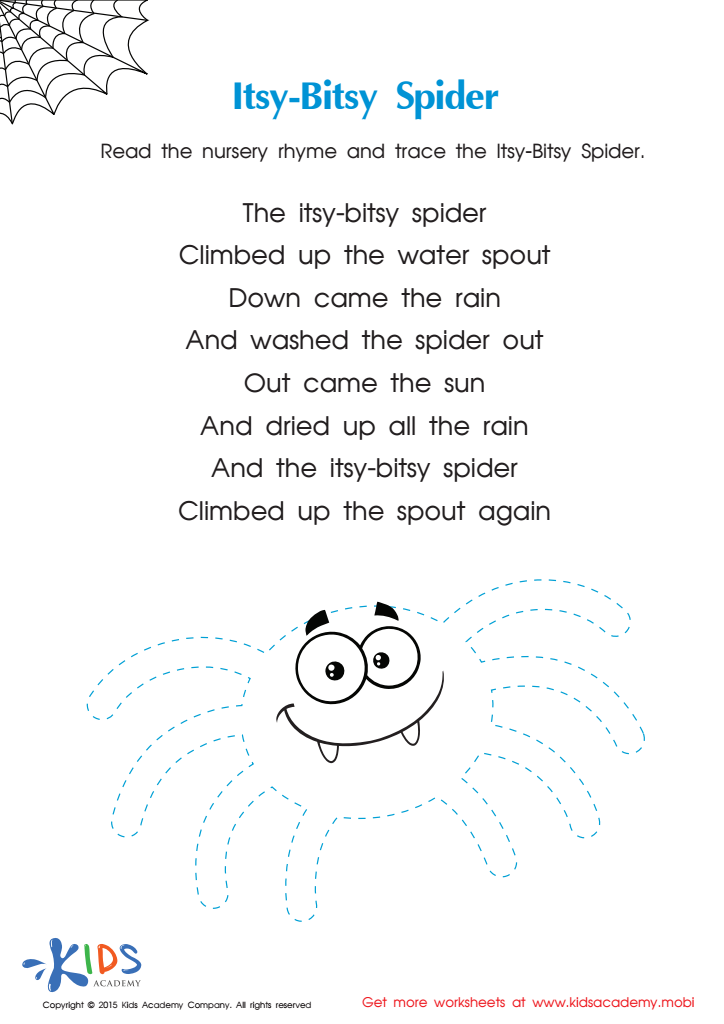

Itsy Bitsy Spider Nursery Rhyme PDF Worksheet


Rhymes in Poems Worksheet
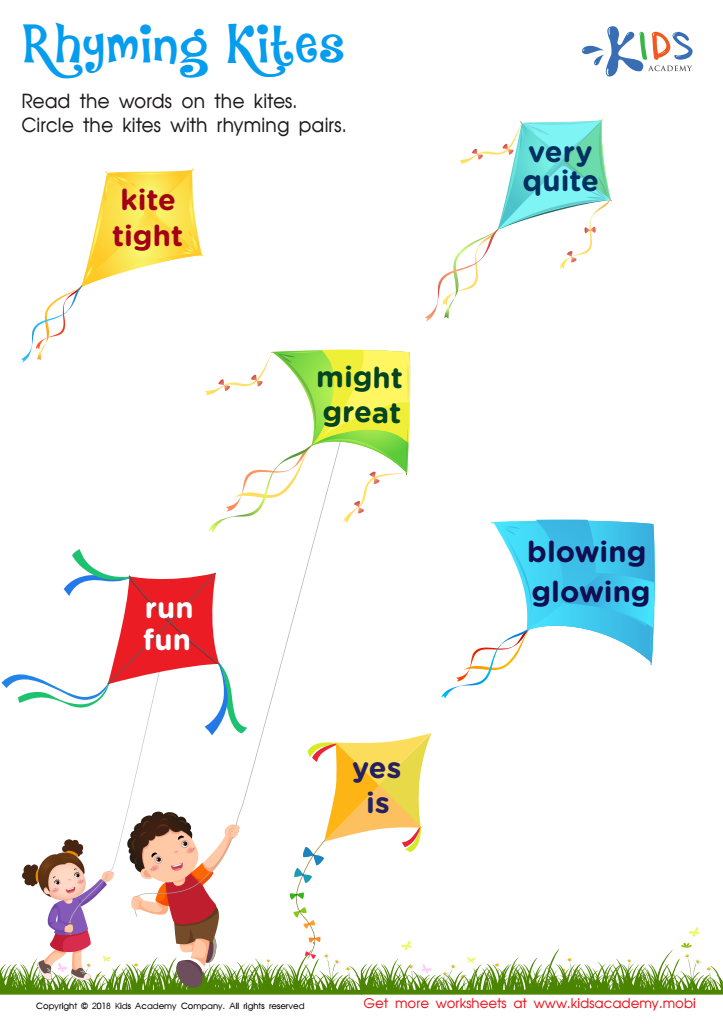

Rhyming Kites Worksheet
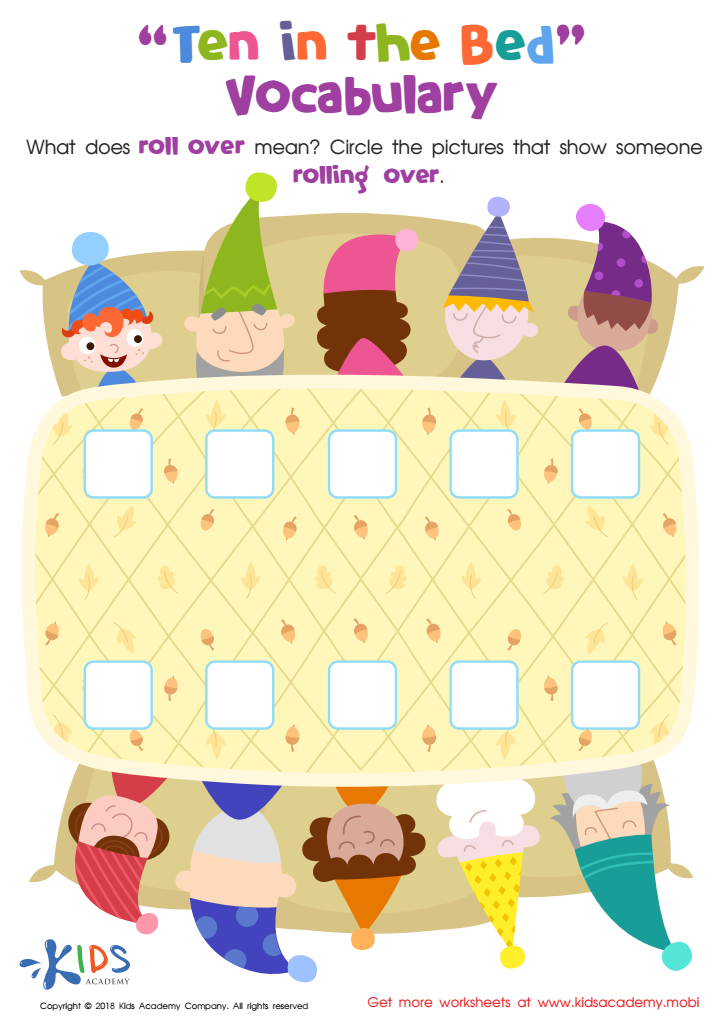

Ten in the Bed: Vocabulary Worksheet
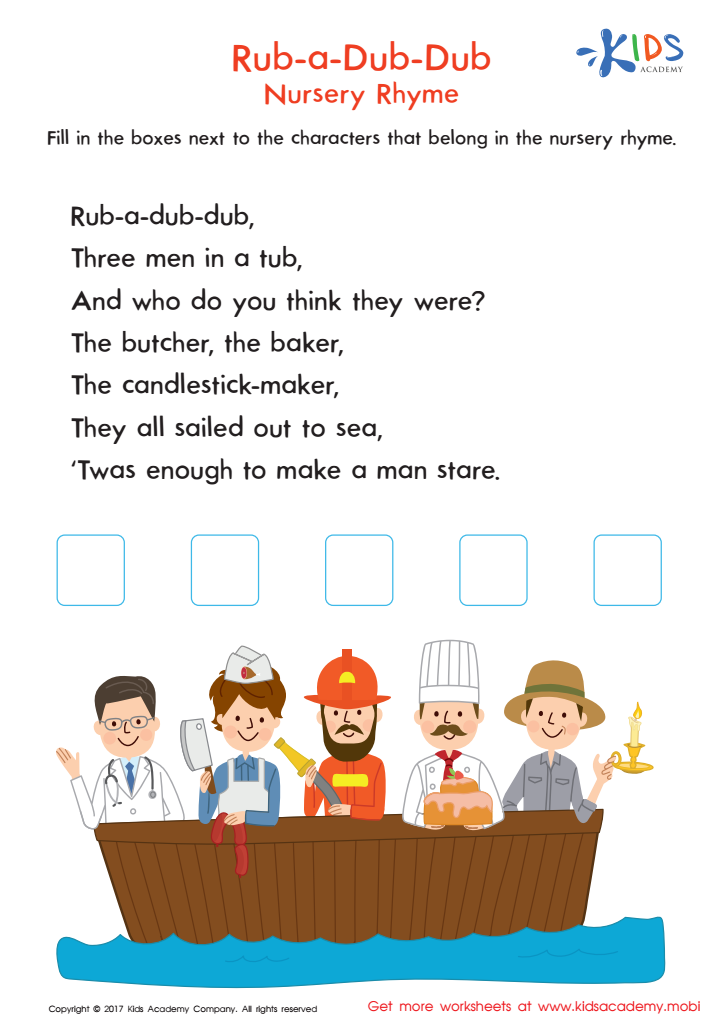

Rub a Dub Dub Printable
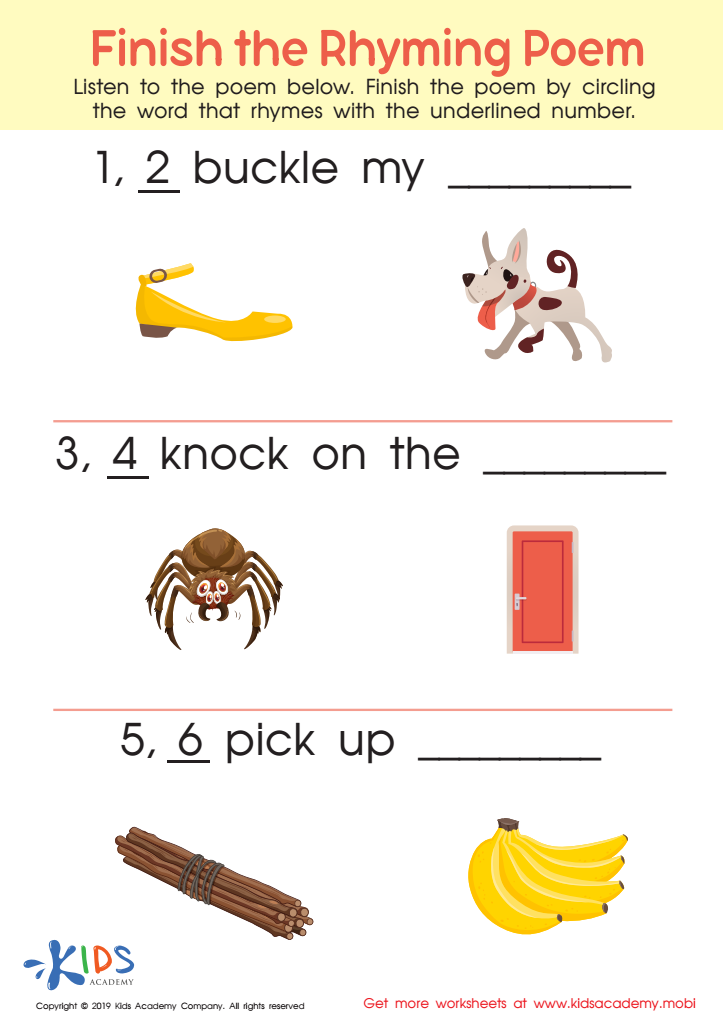

Finish Rhyming Poem Worksheet
Rhyming skills are crucial for children aged 5-7 as they form the foundation for reading development. First and foremost, rhyming helps enhance phonemic awareness, the ability to hear and manipulate sounds in words. This skill is essential for decoding and spelling, as it supports children in recognizing patterns and understanding that words are made up of individual sounds.
Additionally, engaging in rhyming activities fosters vocabulary growth. When children play with rhyme, they are more likely to explore new words and their meanings, which enriches their language skills. Exposure to rhymed literature also sparks interest in reading, making it more enjoyable for young learners and promoting a lifelong love for books.
Furthermore, rhyming aids comprehension and retention. Children who can connect sounds and make predictions about rhyming patterns tend to understand the narrative better, enhancing their overall reading skills. Lastly, the rhythmic nature of rhymes encourages memorization, making it easier for children to recall stories and information.
By prioritizing rhyming skills, parents and teachers equip children with essential tools for reading success, thus laying a strong academic foundation that will benefit them throughout their educational journey.
 Assign to My Students
Assign to My Students
















